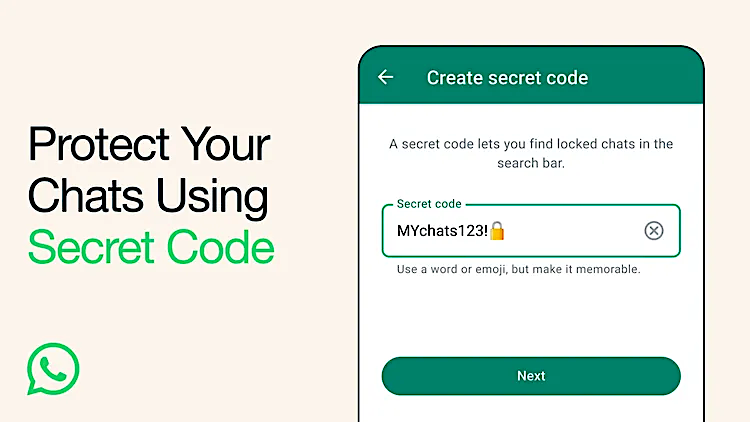
WhatsApp has introduced a new Secret Code feature that allows users to hide their locked chats by setting a custom password.
After it reaches your device, you can set a code (which can also contain emojis) specifically for securing locked chats independent from the device unlock code.
This new feature helps hide the Locked Chats folder from the chat list and disclose it again by entering the secret code in the seek bar for easy access.
Alternatively, you’ll also have the option to keep the folder in the chat list. The process of locking chats has also been streamlined, as it now uses a long-press action, eliminating the need to pilot through chat settings.
“Today we’re launching secret code, an additional way to protect those chats and make them harder to find if someone has access to your phone or you share a phone with someone else,” WhatsApp said on Thursday.
“Secret code starts rolling out today, and in the coming months will be available globally. We’re excited to keep bringing more functions to Chat Lock to help people protect their privacy.”

WhatsApp started rolling out its new Chat Lock privacy feature globally to help users block unauthorized access to sensitive conversations in May.
Users can use Chat Lock to create a secured folder in their chat list, protected by passwords or biometric authentication methods such as fingerprints.
Additionally, Chat Lock automatically conceals locked chat details from notifications, effectively thwarting others’ attempts to snoop into your conversations while using the phone.
“We believe this feature will be great for people who share their phones from time to time with a family member, or in moments where someone else is holding your phone at the exact moment an extra-special chat arrives,” the company said.
Seven years ago, WhatsApp introduced end-to-end encryption and began rolling out end-to-end encrypted chat backups to iOS and Android five years later, in October 2021.
In December of the same year, WhatsApp expanded privacy controls by adding maintain for default disappearing messages to all newly initiated chats.
According to Meta, the parent company of WhatsApp, the video calling and instant messaging platform is currently used by more than two billion people across the globe

